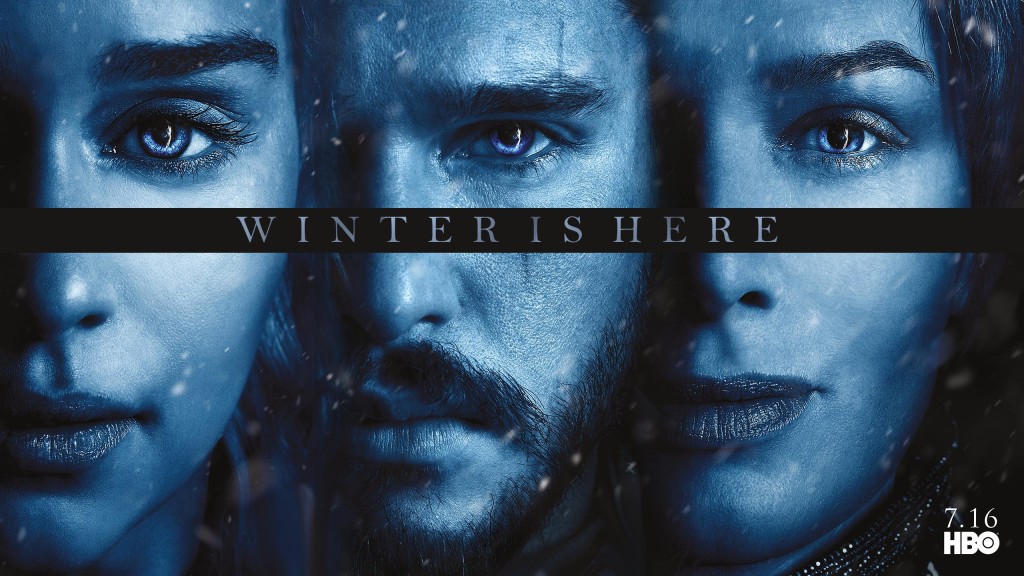There you have it, the penultimate season of the series most likely to make us scream at our televisions. As in seasons past, we’ve gathered our favorite GoT terms, from knee bending to wheel breaking to what exactly are a grumkin and snark.
SPOILERS FOLLOW.
bend the knee
Daenerys: “Send a raven north. Tell Jon Snow his queen invites him to come to Dragonstone — and bend the knee.”
“Stormborn,” July 23, 2017
To bend the knee means to formally submit to a king, queen, or lord. The sense of submitting in general has been in use since at least the 17th century, according to the Oxford English Dictionary (OED). From Richard II: “I hardly yet have learned / To insinuate, flatter, bow, and bend the knee.” Bend the Knee is also the name of a beer.
break the wheel
Tyrion [to Daenerys]: “After you break the wheel, how do we make sure it stays broken?”
“Beyond the Wall,” August 20, 2017
Daenerys first refers to breaking the wheel in “Hardhome”:
Lannister, Targaryen, Baratheon, Stark, Tyrell. They’re all just spokes on a wheel. This one’s on top, then that one’s on top. And on and on it spins, crushing those on the ground. I’m not going to stop the wheel. I’m going to break the wheel.
Tyrion makes a good point this season: despite her fireproof, dragon-whispering ways, Daenerys probably won’t live forever, and once she’s gone, who will succeed her? Unfortunately, denial ain’t just a river with Dany, and she refuses to discuss such matters.
cutthroat
Sansa: “Why would he give you a dagger?”
Bran: “He thought I’d want it.”
Sansa: “Why?”
Bran: “Because it was meant to kill me.”
Sansa: “The cutthroat. After your fall.”
Arya: “Why would a cutthroat have a Valyrian steel dagger?”
“The Spoils of War,” August 6, 2017
According to the OED, a cutthroat is a “ruffian who murders or does deeds of violence,” or “a murderer or assassin by profession.” The term has been in use since the 16th century. Cutthroat referring to ruthless competition seems to be from the late 19th century while he Online Etymology Dictionary says throat, 1970s college slang for a competitive student, comes from cutthroat.
Dragonpit
Qyburn: “They’re on their way to the Dragonpit now.”
“The Dragon and the Wolf,” August 27, 2017
The Dragonpit is a large Colosseum-like structure at King’s Landing. It was once used by House Targaryen as a stable for their dragons and was destroyed in a civil war called the Dance of the Dragons. It’s said that the dragons grew smaller as a result of being confined to the Dragonpit.
Dragonstone
Sam: “It’s a map of Dragonstone. The Targaryans built their first stronghold there when they invaded Westeros.”
“Dragonstone,” July 16, 2017
The castle on Dragonstone Island, Dragonstone is the “the ancestral seat of House Targaryen and in the beginning of the series, was “held for King Robert Baratheon by his brother, Lord Stannis.” Other castles in Westeros include Casterly Rock of House Lannister; Winterfell, the seat of the ruler of the North and traditional home of House Stark; and Pyke of House Greyjoy.
Golden Company
Cersei: “Highgarden bought us the most powerful army in Essos. The Golden Company.”
“The Dragon and the Wolf,” August 27, 2017
The Golden Company is a band of mercenaries, specifically sellswords, in Essos. Other types of mercenaries include freeriders, similar to mounted swellswords but who fight only for food supplies and a share of the plunder rather than regular payment, and sellsails, mercenary sailors.
grumkins and snarks
Jon Snow [to Tyrion Lannister of the White Walkers]: “Grumkins and snarks, you called them.”
“The Queen’s Justice,” July 30, 2017
Grumkins and snarks are mythical creatures in Westerosi folk tales and are spoken “in the same breath as ghosts, goblins, vampires, the bogeyman, etc.” Grumkins are “associated with granting wishes” and are implied to be “of short stature,” and “may also steal and replace children.” Snarks are often referenced as “an improbable danger.”
The word grumkin seems to have been created by George R. R. Martin, perhaps as a blend of gremlin and munchkin, given grumkins’ small size, while snark was coined by Lewis Carroll in Alice’s Adventures in Wonderland, referring to an imaginary animal.
The Long Night
Sam Tarly: “If you tell every maester in the Citadel to search every word of every faded scroll about the Long Night, they may find something that lets them defeat the Army of the Dead for good.”
“Eastwatch,” August 13, 2017
The Long Night refers to a winter that lasts an entire generation. The last Long Night occurred 8,000 years “before the Targaryen Conquest.” As a result, “thousands starved as the crops and fields lay buried under dozens of feet of snow.” At the same time, the “White Walkers descended upon Westeros,” giving rise to the War for the Dawn.
Night King
Bran: “You’ve seen the Night King. He’s coming for us.”
“Dragonstone,” July 16, 2017
The Night King is the supreme leader of the White Walkers, an “ancient race of humanoid ice creatures” who come from the Far North, as well as the master of the wights, corpses reanimated by White Walkers (think Walking Dead zombies, only less bitey).
The Twins
Archmaester Marwyn: “We’re not like the people south of the Twins. And we’re not like the people north of the Twins.”
“Dragonstone,” July 16, 2017
The Twins are another castle in Westeros, this one the seat of House Frey. Also known as The Crossing and consisting of two almost identical towers and a fortified bridge, the Twins “represents the only crossing point over” a river “for hundreds of miles in either direction,” a major barrier to those traveling from the North to the western Riverlands. Avoiding the Twins “requires a lengthy detour hundreds of miles to the south or hazardously traversing the bogs and swamps of the Neck to the north.”
Want even more GoT words? Check out our posts on seasons six, five, four, and three.
